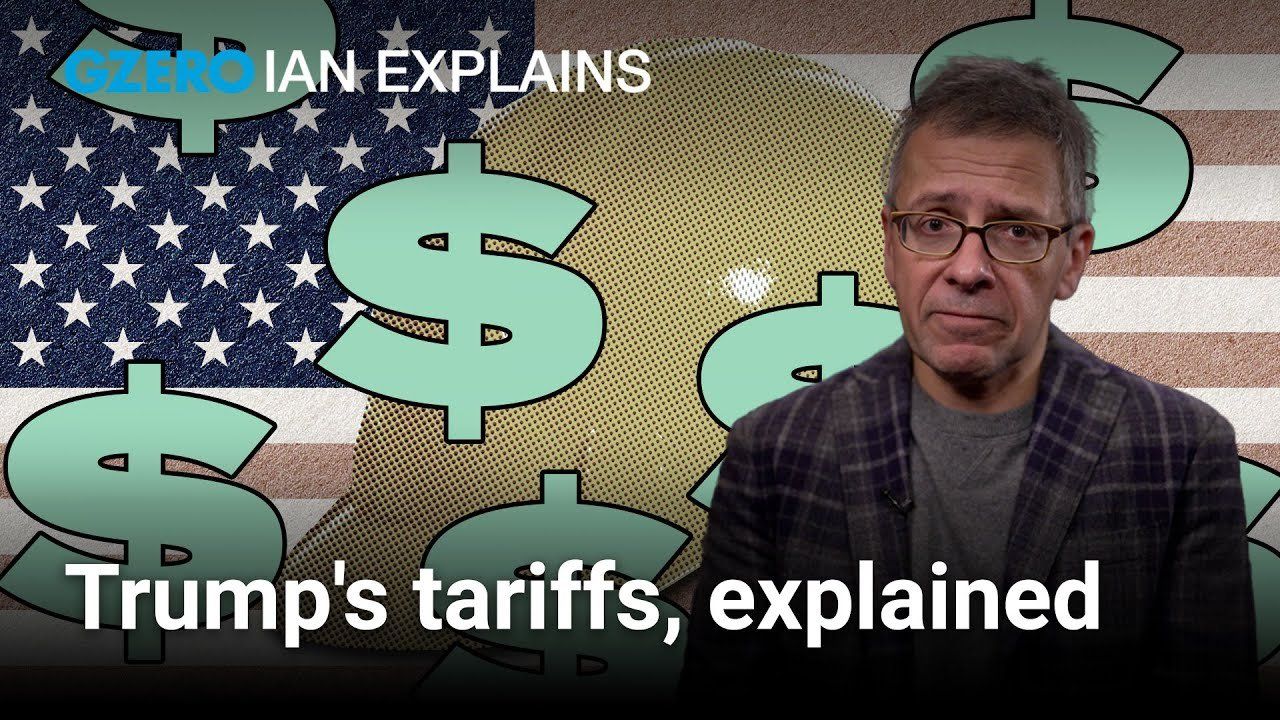
- YouTube
For almost as long as Donald Trump has been in the public eye, his economic worldview has been remarkably consistent: unfair trade deals and globalization have pumped millions into foreign economies while hurting US workers and businesses. That message resonated with voters who feel left behind by the global economy. Trump’s solution? Also very consistent: tariffs. Big ones. On Ian Explains, Ian Bremmer breaks down Donald Trump’s tariff plan and what it could mean for US consumers. On the campaign trail, Trump called for a minimum 10% tariff on all imports and at least 60% on goods from China. Recently, he threatened additional tariffs on Canada, Mexico, and China over immigration and drugs. Trump says tariffs will protect US jobs and boost manufacturing, but economists warn they’ll spark a global trade war and send prices soaring. Will voters endure short-term pain for long-term gain?
GZERO World with Ian Bremmer, the award-winning weekly global affairs series, airs nationwide on US public television stations (check local listings).
New digital episodes of GZERO World are released every Monday on YouTube. Don't miss an episode: subscribe to GZERO's YouTube channel and turn on notifications (🔔).
From Your Site Articles
- Ian Explains: Has a US president ever been arrested before Trump? ›
- Ian Explains: Will foreign policy decide the 2024 US election? ›
- Ian Explains: Who does China and Russia want to win the US election, Biden or Trump? ›
- Ian Explains: Trump's Republican competition ›
- Canada tariff: Is Trump undermining America’s closest allies? - GZERO Media ›
- Did Wall Street get Trump wrong? Ian Bremmer explains - GZERO Media ›
- What if Japan & South Korea sided with China on US tariffs? - GZERO Media ›
- Trump's tariffs & the end of globalization - GZERO Media ›
- Who benefits from Trump's tariff wall? | Ian Bremmer's Quick Take - GZERO Media ›